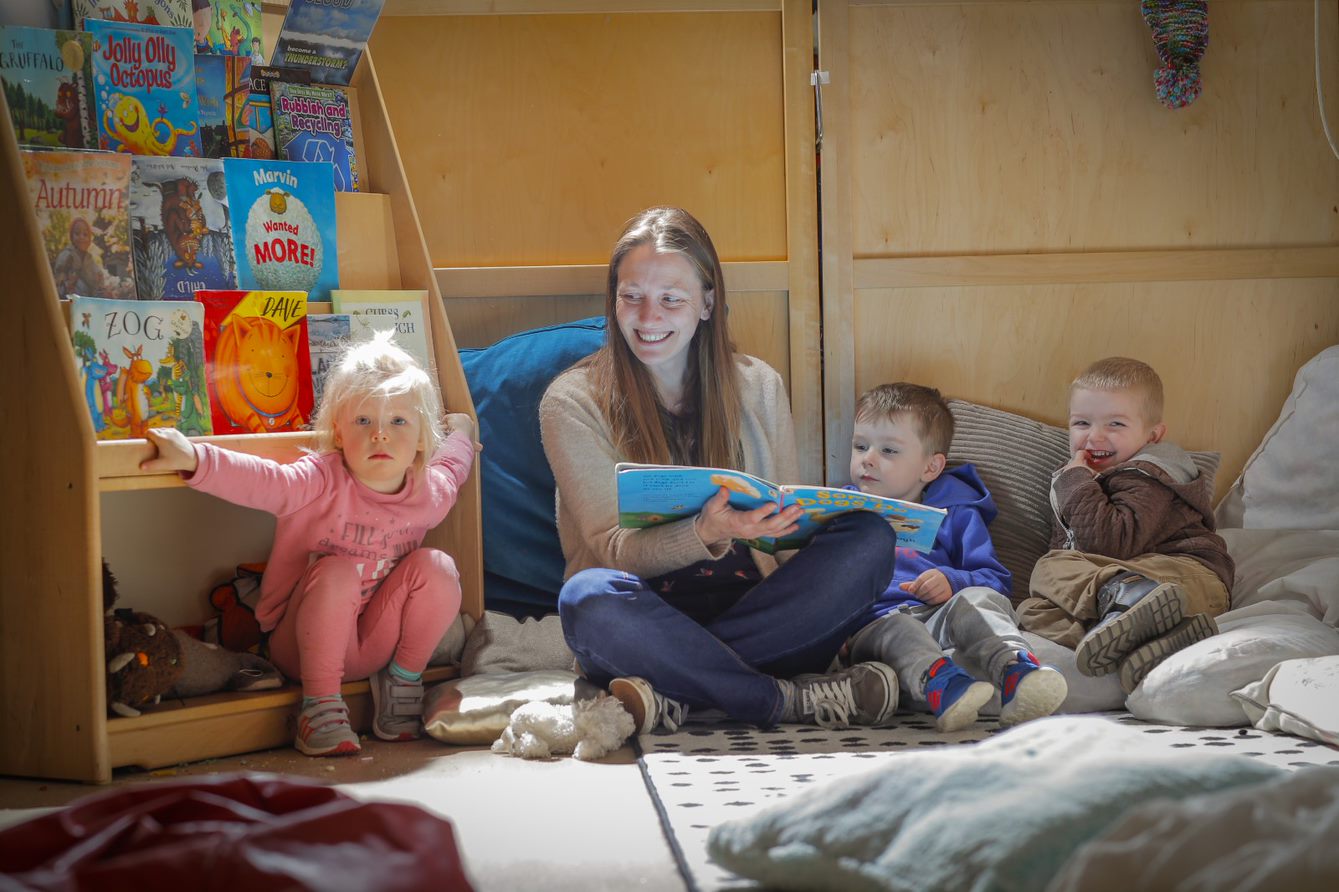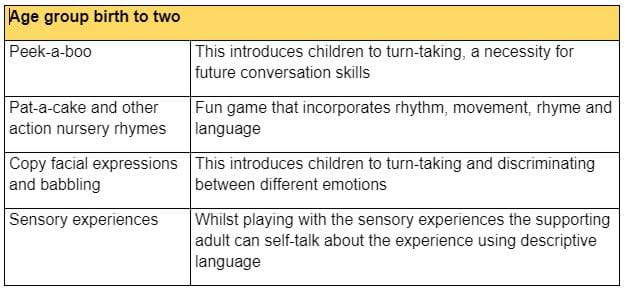Good Practice in Early Years

Once upon a story…
The revised Ofsted early years inspection handbook (2019) places an increased emphasis on the importance of language and vocabulary. It states that inspectors will consider how well staff ‘read aloud and tell stories to children and encourage children to sing songs, nursery rhymes and musical games.’ (part 1 point 65)
The Education Endowment Foundation (2018b) conducted research and found that practitioners must have knowledge of how to develop language, literacy and phonics and this is reflected through an inspiring learning environment coupled with effective interactions with children. There have been numerous studies and research identifying the correlation of children with wider vocabularies and later academic success. As early years professionals it is our intent to ensure that all children are given a language rich environment to secure the solid foundations on which to build upon.
Here are some simple ideas to include everyone in the implementation:



All the activities can be initiated indoors and out and there are many more that can be explored in the outdoor environment, like sound walks. Whatever activity we are doing, expending vocabulary is very important. What child does not like a complex dinosaur name so they will also love crenulation, onomatopoeia, and dishevelled too. This learning does not just happen at the setting, but it is really important to work closely with families too.

Ofsted were very clear with their revision of the Education Inspection Framework (2019) that literacy, reading, singing etc are high on their agenda especially when data is informing us that speech and language concerns are on the increase so if the smallest and easiest of activities improve outcomes for children surely they must be implemented.
Top tips
Look at the language on offer in the book. Is it exciting and varied? Does it introduce new vocabulary?
Never read a story out loud you have never read before.
Think about the length of the story and the size of group you are reading it to.
Look at the quality of the illustrations.
Don’t forget if you are playing music you need a licence.
Final thoughts for reflection
How do you ensure that children have access to good quality books and a range of stories?
How does the book area promote children’s love of reading?
How often do you sing nursery rhymes in your setting? Is it enough?
How do you encourage children to develop a love for stories and music?
Useful links
Literacy trust - https://literacytrust.org.uk
I-can - https://www.ican.org.uk
Book trust - https://www.booktrust.org.uk
Education Endowment Foundation - https://educationendowmentfoundation.org.uk


